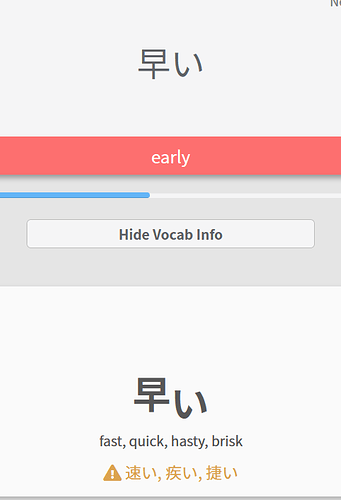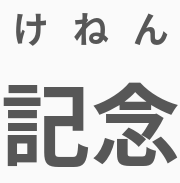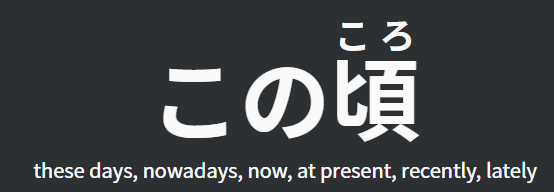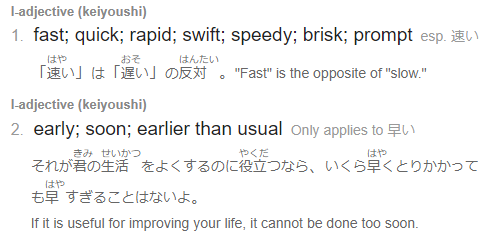早い is for anything time related. You got somewhere early, some action was completed quickly, etc.
速い is for movements. Running fast, driving fast, etc.
The distinction between fast, quick, and early in English don’t exactly reflect the Japanese distinction between 早い and 速い very neatly, and this happens often.
Tangential Anecdote
I just got into a debate with a teacher I work with (an English teacher in Japan) who insists that strawberries, watermelons, and other vine growing fruits are, in fact, vegetables. This is because in Japanese they are 野菜 due to the fact that they grow in a field, and not on a tree or bush.
Since 野菜 means “vegetable”, he therefore believes that strawberries are vegetables.
The problem is that, similarly to 速い and 早い, the distinction between English “fruits” and “vegetables” is not the same as the Japanese distinction between 果物 and 野菜 despite the distinction lining up 99% of the time.
Hope that helps to highlight the issue at play here!


 !
!




